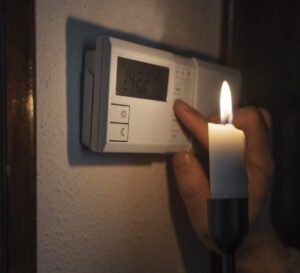Energy is a fundamental human need and access to reliable and affordable energy services is essential for improving the quality of life and fostering economic development. However, energy poverty, a pressing global issue, continues to hinder progress in numerous regions around the world. This article delves into the concept of energy poverty and the initiatives that should be taken to address this critical challenge.
 What is energy poverty?
What is energy poverty?
Energy poverty is defined as the inability of people to access safe, affordable, and sufficient energy for their basic needs, such as heating, cooling, cooking, and lighting. In 2023, despite technological advances, energy poverty remains a reality for many households, regardless of where they live. Can you imagine that almost 800 million people globally have no electricity, and about 2.6 billion, a third of the world’s population have no access to clean and safe cooking fuels?
Drivers of energy poverty in 2023
- High energy costs: The cost of energy, especially when it comes to heating and cooling, can be unbearable for low-income families. Rising global energy prices exacerbate this situation.
- Low incomes: Families with low incomes often struggle to cover the cost of energy to keep their home temperature at necessary levels.
- Poor energy efficiency: Old and upgraded homes often lack efficient heating and cooling systems, making them costly to run.
Efforts to combat energy poverty.
Tackling energy poverty requires a multi-faceted approach involving governments, international organizations, and local communities. Some of the necessary strategies that should be pursued are:
Electrification programs: Governments and agencies should invest in expanding access to electricity in rural and underserved areas by expanding electricity grids or developing off-grid solutions such as solar power.
Energy efficiency: Promoting energy-efficient technologies, from efficient cookers to LED lighting, can significantly reduce household energy costs.
Energy-efficient energy efficiency can reduce energy consumption by reducing energy bills: Providing financial support or microfinance options to low-income households can help them gain access to clean and affordable energy solutions.
Awareness raising and education: Raising awareness about the importance of energy access and the risks of traditional energy sources is crucial to addressing the issue.
Renewable energy initiatives: Promoting the use of renewable energy sources, such as wind and solar power, can provide reliable and sustainable access to energy while reducing environmental impacts.

Energy poverty remains a serious social problem in 2023. It is a complex and multifaceted challenge that affects millions of people worldwide. By acknowledging the severity of the issue, mobilizing resources, and adopting sustainable and inclusive solutions, we can make substantial progress in alleviating energy poverty, improving living conditions, and promoting global development. It is a collective responsibility to ensure that access to affordable, clean, and reliable energy is a reality for all, not a privilege for the few.

